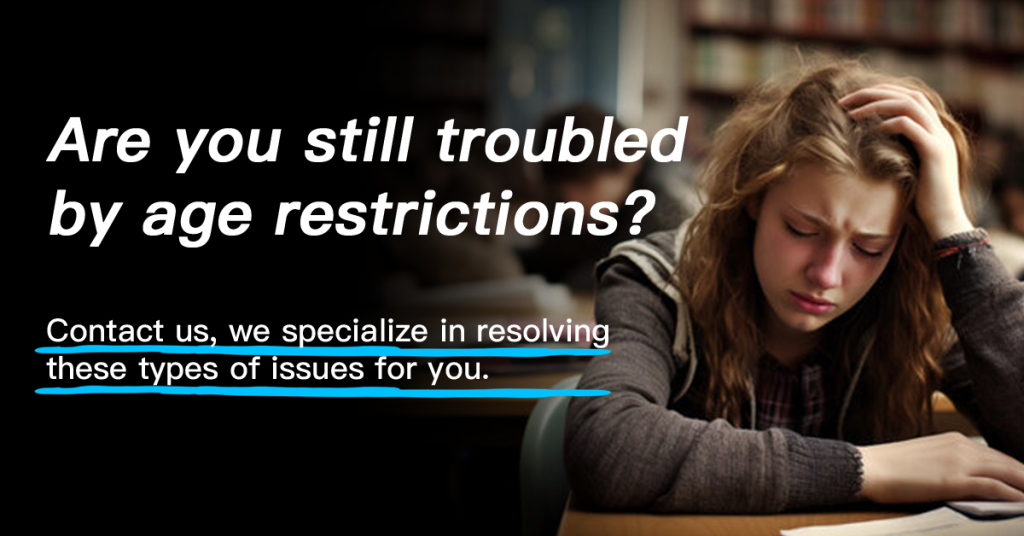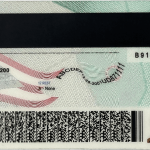In 2025, the travel agency industry has been facing increasing challenges in dealing with fake IDs in visa applications. With the growth of international travel and the complexity of visa – related procedures, the prevention of fake IDs has become a crucial task for travel agencies to ensure the smooth operation of their business and to comply with legal requirements.
Advanced Document Verification Technologies
One of the primary methods used by travel agencies in 2025 is the adoption of advanced document verification technologies. These technologies are designed to detect even the most sophisticated fake IDs. For example, many agencies are using high – resolution scanners that can capture every minute detail of an ID document. These scanners are equipped with software that can analyze the texture, color, and micro – printing on the ID. If there are any inconsistencies, an alert is immediately generated. Some scanners can also detect the presence of holograms and other security features that are typical of genuine ID documents.
Another emerging technology is the use of artificial intelligence (AI) and machine learning algorithms in document verification. These algorithms are trained on a vast database of genuine and fake ID samples. They can quickly identify patterns and anomalies in ID documents. For instance, if an ID has a signature that does not match the standard font or style used by the issuing authority, the AI – based system can flag it as potentially fake. AI can also analyze the watermarks and other security elements in real – time, providing a more accurate and efficient verification process.

Stringent Staff Training Programs
Travel agencies in 2025 understand that well – trained staff are the first line of defense against fake IDs. As a result, they have implemented stringent staff training programs. These programs cover a wide range of aspects related to ID verification. Staff are trained to recognize the different types of ID documents from various countries, including passports, identity cards, and travel documents. They are taught about the security features of each type of document and how to check for them.
Agency employees are also trained in customer interaction techniques. They are taught how to ask the right questions to clients during the visa application process. For example, if a client’s ID seems suspicious, the staff can politely ask for additional documentation or clarify certain details about the ID. This interaction not only helps in verifying the authenticity of the ID but also provides an opportunity to build trust with the client. Regular refresher courses are also provided to keep the staff updated with the latest trends in fake ID production and detection methods.
Collaboration with Issuing Authorities
Travel agencies in 2025 are actively collaborating with ID and visa – issuing authorities. This collaboration is crucial for several reasons. Firstly, it allows agencies to stay updated with the latest security features and design changes in ID documents. Issuing authorities often share information about new security elements being added to passports and other IDs. This helps travel agencies to adjust their verification processes accordingly.
Secondly, in case of any doubts about an ID, agencies can directly contact the issuing authority for verification. Many countries have established dedicated channels for such inquiries, which are often electronic platforms where travel agencies can submit ID – related queries. The issuing authorities can then respond quickly, confirming the authenticity or otherwise of the ID. This collaboration also helps in building a stronger network to combat the problem of fake IDs in visa applications on a global scale.
Background Checks and Verification Protocols
Along with document verification, travel agencies in 2025 conduct thorough background checks on their clients. This includes verifying the client’s personal information such as their address, employment status, and travel history. If there are any discrepancies between the information provided on the ID and the results of the background check, it can be a red flag for a possible fake ID.
Agencies have also established strict verification protocols. For example, when a client submits a visa application, the agency first checks the ID document for physical signs of tampering or forgery. Then, they run the ID through their document verification systems. After that, the background check is initiated. Only when all these steps are successfully completed is the visa application considered valid. These protocols ensure that no fake ID – related visa applications slip through the cracks.
Common Problems and Solutions
- Problem: Difficulty in Identifying Subtle Forgeries
Some fake IDs are so well – made that it can be extremely difficult to identify them as forgeries. The forgers may use high – quality materials and advanced printing techniques to replicate the security features of genuine IDs.
Solution: Travel agencies can invest in more advanced verification technologies, such as 3D micro – scanners. These scanners can detect minute differences in the thickness and texture of the ID material, which may not be visible to the naked eye or even to standard scanners. Additionally, continuous staff training on the latest forgery techniques can help employees be more vigilant and better able to spot such subtle forgeries.
- Problem: Over – Reliance on Technology
There is a risk of travel agencies becoming over – reliant on document verification technologies. While these technologies are effective, they are not infallible. Technical glitches or the emergence of new types of fake IDs that the existing technology cannot detect can lead to false negatives or positives.
Solution: Agencies should combine technology with human expertise. Staff should be trained to use their judgment in addition to relying on the results of verification systems. For example, if a client’s behavior during the application process seems suspicious, even if the ID passes the technological verification, further investigation can be carried out. Regular audits of the verification systems should also be conducted to ensure their accuracy and effectiveness.
- Problem: Delays in Obtaining Verification from Issuing Authorities
Sometimes, when travel agencies contact issuing authorities for ID verification, there can be delays in getting a response. This can hold up the visa application process and cause inconvenience to clients.
Solution: Agencies can establish priority channels or partnerships with issuing authorities for urgent verification requests. They can also set up internal systems to manage verification requests more efficiently, such as categorizing requests based on urgency. Additionally, providing clear and complete information when making verification requests can help the issuing authorities respond more quickly.
- Problem: Lack of Standardization in ID Verification
Since different countries have different types of ID documents with varying security features, there is a lack of standardization in the ID verification process. This can make it challenging for travel agencies to have a unified approach to verification.
Solution: International organizations and industry associations can play a role in promoting standardization. They can develop guidelines and best practices for ID verification that travel agencies can follow. Travel agencies can also collaborate with each other to share knowledge and experiences in dealing with different types of ID documents, which can help in developing more consistent verification methods.
- Problem: Client Resistance to Background Checks
Some clients may be resistant to the background checks carried out by travel agencies during the visa application process. They may feel that their privacy is being invaded.
Solution: Travel agencies should clearly communicate the purpose and importance of background checks to their clients. They can also ensure that all background check processes comply with relevant privacy laws and regulations. By building trust with clients and explaining how the checks are necessary to prevent fake IDs and ensure the smooth processing of their visa applications, agencies can reduce client resistance.
Fake ID Pricing
unit price: $109
| Order Quantity | Price Per Card |
|---|---|
| 2-3 | $89 |
| 4-9 | $69 |
| 10+ | $66 |



